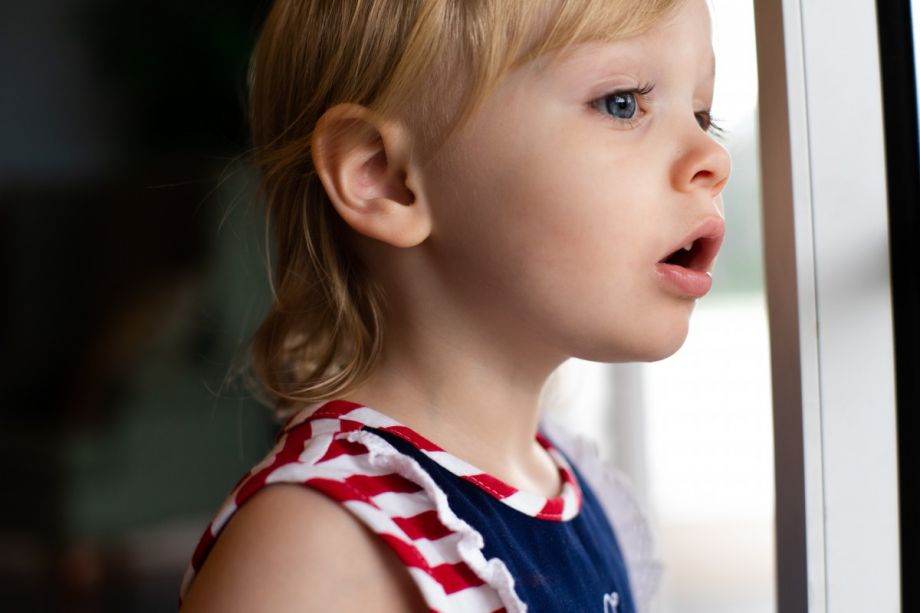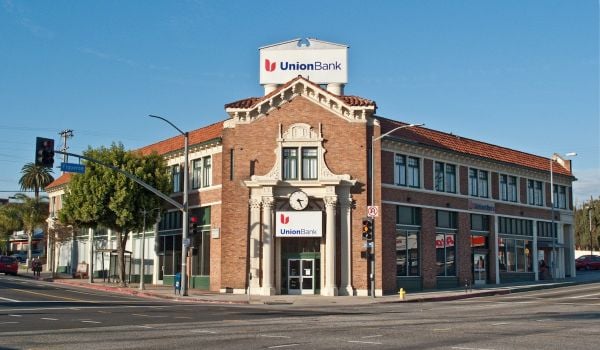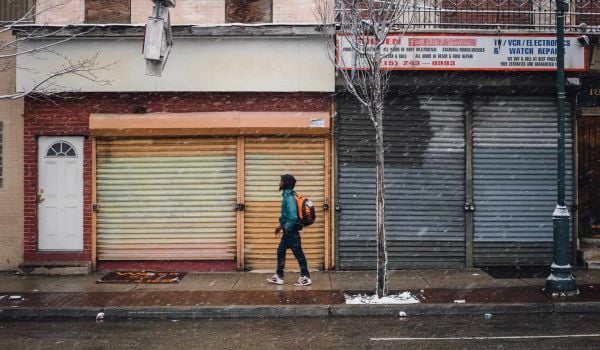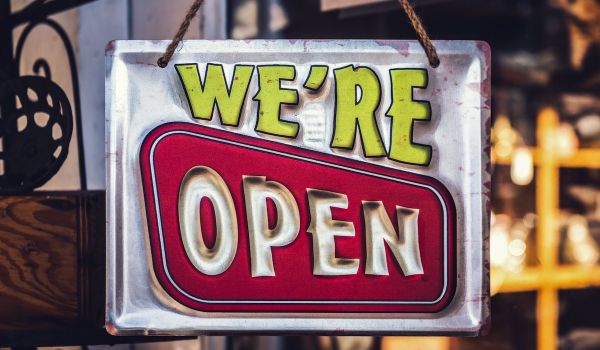Kidmoto founder and CEO Nelson Nigel drove the first trip for his Queens-based car service that specializes in airport transport for parents with small children. It was back in 2016, he remembers, when he picked up a family from Manhattan’s Chinatown and dropped them off at New York’s JFK airport. Each Kidmoto operator arrives in a vehicle equipped with up to four car seats pre-adjusted to fit the height and weight of the children listed on the reservation.
“Our premise is [to] ditch the car seats when flying with a baby,” Nigel says. “Taxis, Ubers don’t provide pre-installed car seats, so when flying with a baby, parents either don’t fly or drive to the airport or just hop in a cab with an unrestrained child. We provide the convenience and safety of pre-installed car seats.”
Nigel stands out with his bright pink suit and pink mob of hair. He was born in Guyana and his family moved to Queens when he was five. He got the idea for Kidmoto years ago, while he was driving for Uber. He’d also been a yellow cab driver before that — which was how he first encountered Accompany Capital, formerly the Business Center for New Americans. A nonprofit, Accompany Capital specializes in providing loans and one-on-one business advisory services for primarily immigrant business owners in the New York City metro area. It made a loan to Nigel to help him get a new transmission for his first yellow cab.

Kidmoto founder Nelson Nigel with one of his operators at San Francisco airport (Photo courtesy of Kidmoto)
Nigel is one of many repeat borrowers that Accompany Capital has cultivated over the years, as their businesses grow and need additional capital or, as with Nigel, they start new businesses. He eventually got another Accompany Capital loan to buy a new car to drive for Uber, and also got a $40,000 loan for Kidmoto in 2018 that the business already repaid. Nigel says Kidmoto would not have gotten to where it is, and it probably would not have survived the pandemic, without the $100,000 loan that Accompany Capital wired to Kidmoto on December 31, 2019 — a ten-year loan at an interest rate of 8.25%, above the SBA average of 6.4% but far below what Kidmoto would get from any lender for that amount without an SBA guarantee.
Kidmoto is now active in 32 cities, with more on the way. More than 9,300 families have downloaded the Kidmoto app. Nigel just returned home from a trip to onboard and train Kidmoto’s 400th operator — serving Sarasota, Florida.
“All because of that $100,000 loan,” Nigel says. “Accompany Capital was there for me when everybody else turned me down. It’s not in big banks’ interest to lend to certain demographics of people or certain businesses. That’s just a reality.”
Nonprofit loan funds like Accompany Capital will be making even more loans like this one in the coming years, thanks to the recently announced expansion of a groundbreaking loan guarantee program from the Small Business Administration.
The SBA typically only guarantees small business loans made by banks, credit unions or for-profit financial firms. But in 2018, Accompany Capital joined the agency’s Community Advantage Pilot Program, allowing access to SBA loan guarantees for nonprofit loan funds that specialize in serving groups whom the SBA has historically failed to reach. Earlier this month, the SBA announced several changes including the end of a 4-year moratorium on new nonprofit loan funds joining the Community Advantage Pilot Program, and it’s also extending the program’s sunset date from the end of this year to 2024.
The SBA loan guarantees allow these specialized nonprofit loan funds to make much larger loans than they typically do. It lets them grow with their clients. Since its inception in 1997, Accompany Capital has made 4,487 loans totaling $42.5 million — an average loan size of just $9,471. But the dozen or so SBA-guaranteed loans Accompany Capital has made since 2018 — including the loan to Kidmoto — average out at $217,000.
“We would not be able to make these loans at this amount without the SBA guarantee,” says Yanki Tshering, co-founder and executive director at Accompany Capital.
The SBA provides tens of thousands of loan guarantees every year under its flagship 7(a) loan-guarantee program. Private lenders, including banks and credit unions, originate the loans, currently capped at $5 million, following the SBA’s near-600 pages of loan guidelines and procedures. If the borrower defaults, and the lender has followed all the rules and filed all the necessary documentation with SBA including quarterly financial reports for each borrower, the SBA pays off up to 90 percent of the remaining loan balance. The loan guarantees are meant to encourage lenders to take on borrowers whom they perceive as riskier, perhaps because of insufficient collateral or having fewer years in operation than lenders typically like to see before making a small business loan.
But the 7(a) program’s reliance on private lenders has proven to be one of its biggest weaknesses. The networks those lenders have, and any implicit or explicit racial or gender bias they might harbor, have shown up for years in SBA’s lending reports. According to the agency’s Fiscal Year 2021 report, just 5% of 7(a) loans in that year went to Black-owned businesses, just 8% to Hispanic-owned businesses, and just 18% to businesses where women were majority owners. Those numbers are on par with pre-pandemic years.
Anyone familiar with those statistics was not surprised when it became clear that the Paycheck Protection Program was not reaching the most vulnerable communities during the pandemic, as Congress intended — because the Paycheck Protection Program was delivered through this same existing network of SBA 7(a) lenders.
The racial and gender lending disparities in the SBA’s 7(a) program were known well enough back in 2011 when the SBA finally heeded calls from community advocates to open up an experimental program to allow “mission-oriented lenders, primarily non-profit financial intermediaries that are focused on economic development in underserved markets” to have access to 7(a) loan guarantees for loans of up to $250,000.
SBA loan guarantees help nonprofit loan funds make larger small business loans than they normally make by giving board members, loan committees, and funders assurance that they’re not putting too many eggs into one borrower’s basket. Most of these loan funds started out and remain committed to making the smaller loans they’ve always made, and their funders have gotten comfortable with the idea of supporting these organizations to make a bunch of relatively small loans with often no collateral and little if any prior years in business. But as some of these borrowers start to demand more capital, and they still can’t or don’t want to find it somewhere else, these lenders find it hard to meet those borrowers where they are.
The Community Advantage program positioned Accompany Capital to make the larger loan to Kidmoto right when the businesses needed it.
“There’s only so much [Accompany Capital] could do going back to 2016-2017,” Nigel says. “I bank with Chase, but Chase would never [approve me]. You could have a zillion credit score but they still would never approve you. But because I had the relationship with Accompany Capital, I kept building on that.”
Since 2011, 116 Community Advantage lenders have made 7,175 SBA guaranteed loans, totaling $968 million — an average loan size of $134,912.
The top Community Advantage lender by a wide margin has been Southern California-based CDC Small Business Finance, which made 1,278 SBA guaranteed loans through the pilot program as of December 31, 2021. The next closest performer is Oakland’s Main Street Launch, with 411 SBA guaranteed loans, followed closely by New York State-affiliated Pursuit NY and its 396 SBA guaranteed loans. Two Texas lenders, PeopleFund and LiftFund, round out the top five with 390 and 377 SBA guaranteed loans, respectively.
CDC Small Business Finance recently merged with Capital Impact Partners, a much larger community development lender with a national footprint. According to the nonprofit lender, 39% of its SBA borrowers have been minority-owned businesses (defined by SBA as American Indian/Alaska Native, Asian, Black/African American, Native Hawaiian/Pacific Islander, or Hispanic), while 34% of its SBA borrowers have been woman-owned businesses.
Shelli Hayman, now Senior Vice President for Small Business Lending at CDC Small Business Finance, took on the role of building out the Community Advantage Lending Team at CDC Small Business Finance in 2016. While it had been part of the program since 2011, by 2016 it only had a team of three staffers working on Community Advantage loans. Today it has a staff of 26 and recently added one more — in Detroit, where Capital Impact Partners has had a presence in community development lending for years.
Hayman says one of the challenges in building up an SBA lending team was getting people with experience doing SBA loans to think outside the typical SBA borrower box.
“When we first started, we had a couple of folks who didn’t have Community Advantage experience but had prior 7(a) experience,” Hayman says. “So we had to roll up our sleeves to teach people and train people to go through that.”
For example, typical applicants for SBA loans will come in having a certain level of cash already saved up in the bank, as well as a home with enough value that it can serve as collateral for the loan. There are ways to make SBA loans without requiring as much cash or personal collateral, but if a lender never encounters borrowers in those circumstances, the lender may not feel comfortable going forward with a loan even with an SBA guarantee to back them up. Community Advantage loans have to follow all the same standard SBA 7(a) procedures, but the lenders in the Community Advantage program are pushing themselves to the limits of what the SBA will allow.
“It takes a certain mindset shift, even though it all still has to comply with the SBA’s standard operating procedures,” Hayman says.
There’s also a lot of trust that SBA loan officers need to build with borrowers, given the level of documentation required both before and after making an SBA guaranteed loan. Oftentimes the only collateral for a Community Advantage loan are the business’s assets, including equipment or furniture or maybe a fleet of vehicles. But in order to comply with the SBA’s rules, the lender needs to obtain from the borrower a list of every item the business owns, including serial numbers for anything worth more than $5,000. It can be too intrusive for some clients who end up calling the whole thing off.
There are borrowers like Nigel who have established that trusting relationship with their lender and understand it’s all just part of the process. “You have to be good with what you’re doing; you have to be fast; you have to be on top of your documentation,” Nigel says.
Even with the 4-year moratorium on new Community Advantage loans lifted, it would still take a significant commitment from nonprofit lenders and their funders to scale up the program. It would help attract more funding if the program were made permanent, as advocates for small businesses and business owners of color have been calling for. Accompany Capital got a grant in 2018 from Citi Community Development to support its Community Advantage lending practice in its launch phase, which was slowed down significantly by the pandemic. Tshering says they are now where they wanted to be in 2020 — about a dozen active SBA guaranteed loans in its portfolio, with a handful more in the pipeline.
Accompany Capital has set a target of seven to nine SBA guaranteed loans per year. That’s about all the nonprofit can probably take at current staffing levels, Tshering says, because the 7(a) program is very intensive in its requirements for lenders to visit borrowers and file documentation on their condition on a quarterly basis. The nonprofit has one SBA loan specialist on its staff, and delegates borrower monitoring and reporting duties across multiple staff members as needed.
Hayman says there are some years that her loan fund’s comparatively massive Community Advantage loan staff pays for itself through fees and interest charged to borrowers, but not every year.
In addition to lifting the moratorium on new Community Advantage lenders, the SBA also lifted the Community Advantage lending cap to $350,000. Tshering says there is definitely demand among her clients for slightly larger loans, and the additional fee and interest income from those larger loans will help her organization pay for the staffing it takes to administer these loans and also provide the technical assistance to make sure borrowers succeed.
“The new $350,000 cap is good for the client and good for us, in terms of program income,” Tshering says.
This story was updated with Shell Hayman’s current title.
This article is part of The Bottom Line, a series exploring scalable solutions for problems related to affordability, inclusive economic growth and access to capital. Click here to subscribe to our Bottom Line newsletter.

Oscar is Next City's senior economic justice correspondent. He previously served as Next City’s editor from 2018-2019, and was a Next City Equitable Cities Fellow from 2015-2016. Since 2011, Oscar has covered community development finance, community banking, impact investing, economic development, housing and more for media outlets such as Shelterforce, B Magazine, Impact Alpha and Fast Company.
Follow Oscar .(JavaScript must be enabled to view this email address)


















